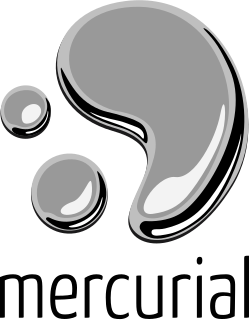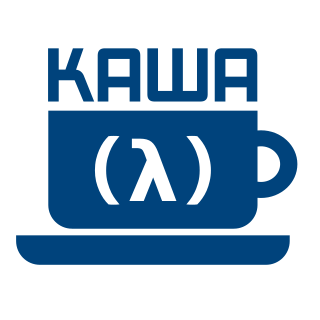Related Research Articles

GNU is an operating system and an extensive collection of computer software. GNU is composed wholly of free software, most of which is licensed under the GNU Project's own General Public License (GPL).

GnuCash is an accounting program that implements a double-entry bookkeeping system. It was initially aimed at developing capabilities similar to Intuit, Inc.'s Quicken application, but also has features for small business accounting. Recent development has been focused on adapting to modern desktop support-library requirements.
Scheme is a minimalist dialect of the Lisp family of programming languages. Scheme consists of a small standard core with powerful tools for language extension.

GNU Octave is software featuring a High-level programming language, primarily intended for numerical computations. Octave helps in solving linear and nonlinear problems numerically, and for performing other numerical experiments using a language that is mostly compatible with MATLAB. It may also be used as a batch-oriented language. Since it is part of the GNU Project, it is free software under the terms of the GNU General Public License.

GNU Ubiquitous Intelligent Language for Extensions is the preferred extension language system for the GNU Project and features an implementation of the programming language Scheme. Its first version was released in 1993. In addition to large parts of Scheme standards, Guile Scheme includes modularized extensions for many different programming tasks.
Scheme In One Defun, or humorously Scheme In One Day (SIOD) is a programming language, a dialect of the language Lisp, a small-size implementation of the dialect Scheme, written in C and designed to be embedded inside C programs. It is notable for being perhaps the smallest practical implementation of a Lisp-like language. It was written by George J. Carrette originally. It is free and open-source software released under a GNU Lesser General Public License (LGPL).

Mercurial is a distributed revision-control tool for software developers. It is supported on Microsoft Windows and Unix-like systems, such as FreeBSD, macOS and Linux.
imake is a build automation system written for the X Window System. It was used by X from X11R1 (1987) to X11R6.9 (2005), and continued to be used in XFree86. It is implemented on top of the C preprocessor and make. The first version was written by Todd Brunhoff at Tektronix.
String functions are used in computer programming languages to manipulate a string or query information about a string.
Scheme Requests for Implementation (SRFI) is an effort to coordinate libraries and extensions of standard Scheme programming language, necessitated by Scheme's minimalist design, and particularly the lack of a standard library before Scheme R6RS. SRFI is supported by many Scheme implementations. As such, it is an informal standard.
The Ruby License is a Free and Open Source license applied to the Ruby programming language and also available to be used in other projects. It is approved by the Free Software Foundation although it has not been approved Open Source by the Open Source Initiative.
Gambit, also called Gambit-C, is a programming language, a variant of the language family Lisp, and its variants named Scheme. The Gambit implementation consists of a Scheme interpreter, and a compiler which compiles Scheme into the language C, which makes it cross-platform software. It conforms to the standards R4RS, R5RS, and Institute of Electrical and Electronics Engineers (IEEE), and to several Scheme Requests for Implementations (SRFIs). Gambit was released first in 1988, and Gambit-C (Gambit with a C backend) was released first in 1994. They are free and open-source software released under a GNU Lesser General Public License (LGPL) 2.1, and Apache License 2.0.
STklos is a Scheme implementation that succeeded STk. It is an interpreter based on an ad hoc virtual machine which aims to be fast as well as light.
Chez Scheme is a programming language, a dialect and implementation of the language Scheme which is a type of Lisp. It uses an incremental native-code compiler to produce native binary files for the x86, PowerPC, and SPARC processor architectures. It has supported R6RS standard since version 7.9.1. It is free and open-source software released under an Apache License, version 2.0. It was first released in 1985, by R. Kent Dybvig, originally licensed as proprietary software, and then released as open-source software on GitHub with version 9.4.

SCM is a programming language, a dialect of the language Scheme. It is written in the language C, by Aubrey Jaffer, the author of the SLIB Scheme library and the JACAL interactive computer algebra program. It conforms to the standards R4RS, R5RS, and IEEE P1178. It is free and open-source software released under a GNU Lesser General Public License (LGPL).

Kawa is a language framework written in the programming language Java that implements the programming language Scheme, a dialect of Lisp, and can be used to implement other languages to run on the Java virtual machine (JVM). It is a part of the GNU Project.
Emacsor EMACS is a family of text editors that are characterized by their extensibility. The manual for the most widely used variant, GNU Emacs, describes it as "the extensible, customizable, self-documenting, real-time display editor". Development of the first Emacs began in the mid-1970s, and work on its direct descendant, GNU Emacs, continues actively as of 2020.
This article deals with programming languages used in the Amiga line of computers, running the AmigaOS operating system and its derivatives AROS and MorphOS. It is a split of the main article Amiga software. See also related articles Amiga productivity software, Amiga music software, Amiga Internet and communications software and Amiga support and maintenance software for other information regarding software that runs on Amiga.
Slib or SLIB may refer to:
References
- ↑ Jaffer, Aubrey (2008-07-14). "SRFI 96: SLIB Prerequisites". The SRFI Editors, srfi.schemers.org.
- ↑ "GNU Project Entries". Free Software Foundation, fsf.org. Retrieved 2010-04-11.